Ambassadors of India
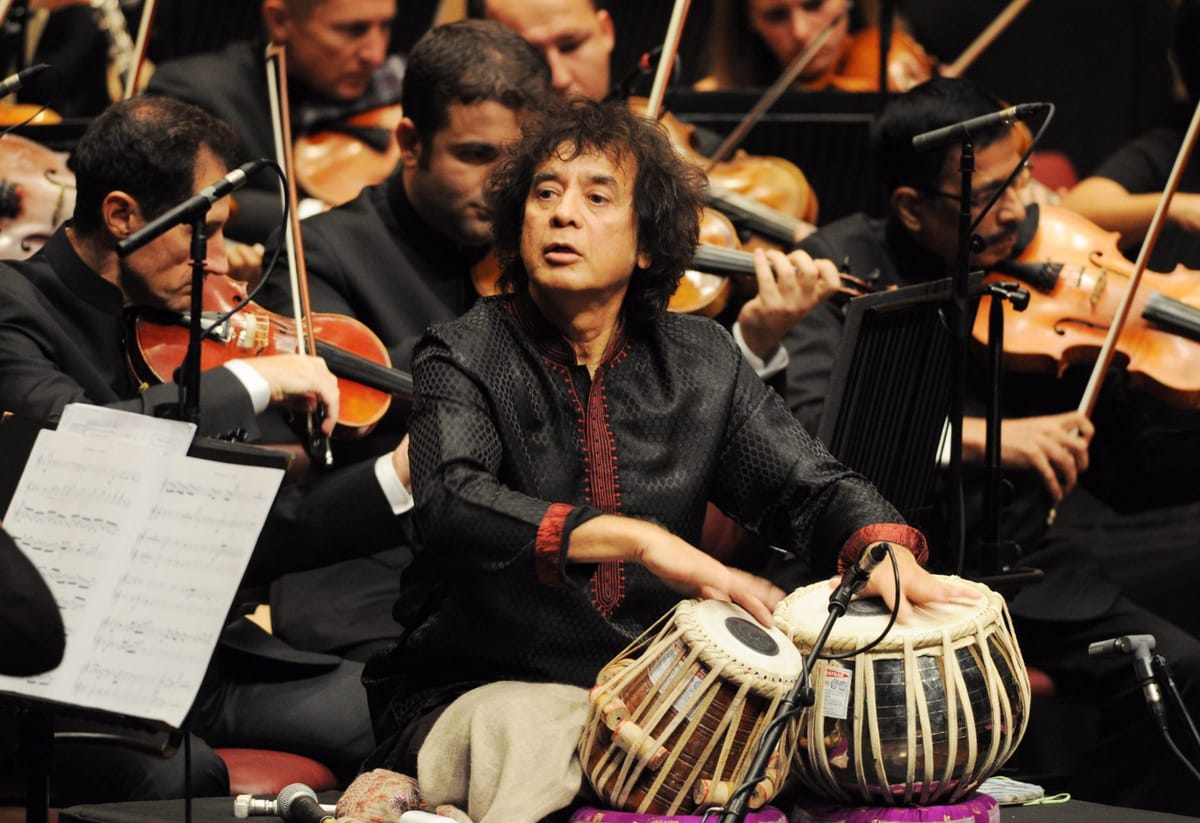
Symphony Orchestra of India marks UK debut in February 2019 with six-concert tour, including Russian romantic showpieces and Zakir Hussain’s Peshkar
India’s growing appetite for Western classical music has led many to forecast a coming age of rich cultural exchange and vigorous creative dialogue. The Symphony Orchestra of India, the sub-continent’s first and only fully professional orchestra, stands in the vanguard of institutions bringing symphonic repertoire to India while building bridges with classical artists and audiences worldwide. The SOI is ready to make history with its inaugural UK tour (Tuesday 19 to Monday 25 February 2019). The orchestra’s six-concert schedule comprises two dates at London’s Cadogan Hall and performances at Symphony Hall Birmingham, St David’s Hall Cardiff, G Live in Guildford and Edinburgh’s Usher Hall.
The SOI’s tour repertoire includes Rimsky-Korsakov’s Scheherazade, Rachmaninov’s Symphony No.2, concert overtures by Beethoven and Weber, and Zakir Hussain’s Peshkar, a concerto for tabla and symphony orchestra. Zane Dalal, the SOI’s Associate Music Director, will share conducting duties with Martyn Brabbins, while the orchestra’s Music Director, the Kazakh violinist and conductor Marat Bisengaliev, is set to join the tour as soloist in Bruch’s Violin Concerto No.1 and Saint-Saëns’ Violin Concerto No.3. Virtuoso tabla player Zakir Hussain, hailed by the Telegraph as ‘the presiding genius and global ambassador for North Indian classical music’, will perform the solo part in Peshkar.
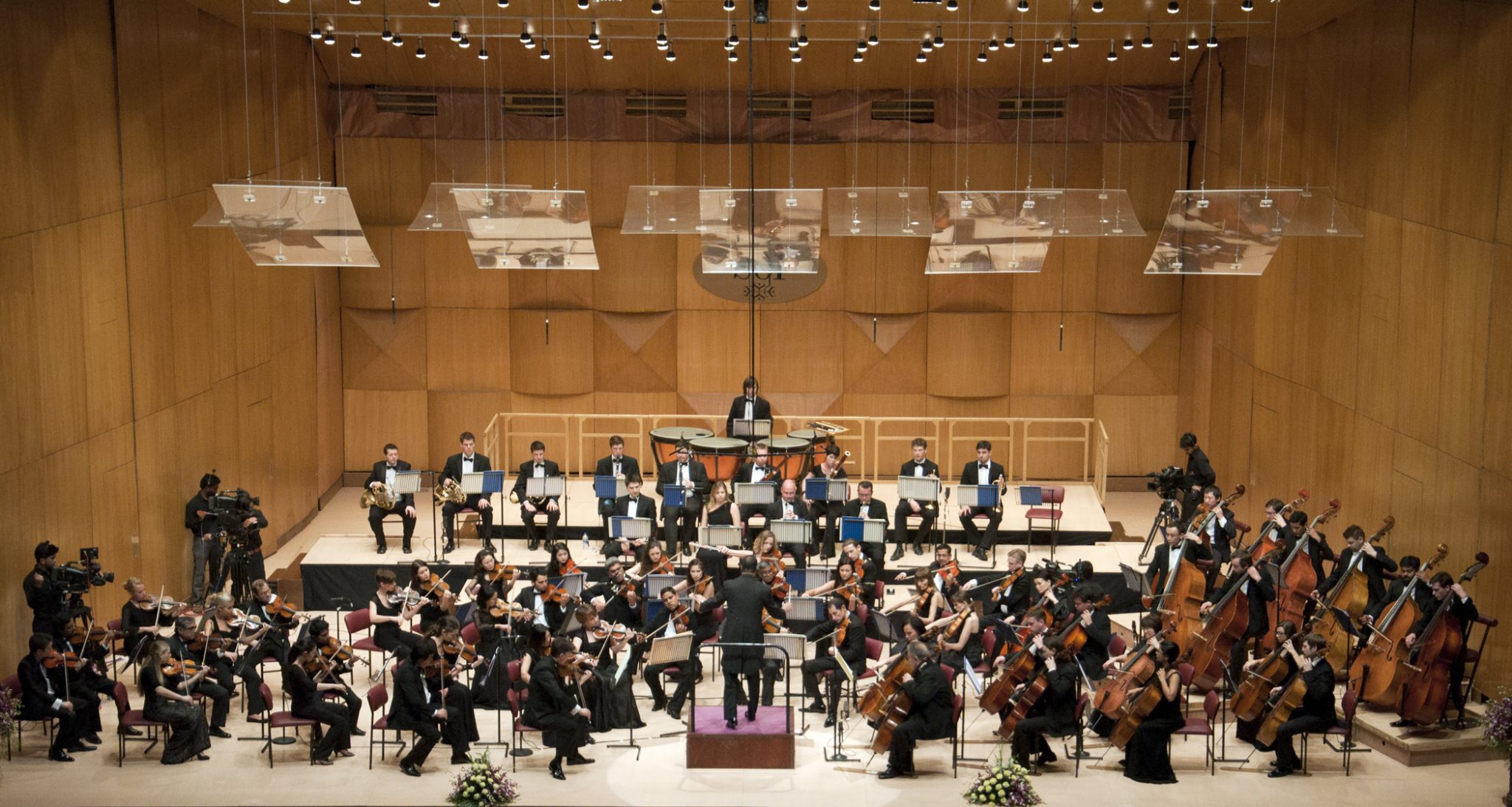
Khushroo N. Suntook, Chairman of the National Centre for the Performing Arts (NCPA) in Mumbai and co-founder of the SOI, sees the orchestra’s tour to the United Kingdom as a major milestone in its history. “We’re all very excited about our visit,” he comments. “I know the players are happy and I’m particularly pleased because for me it is a dream come true.” The lawyer and arts administrator, whose school friends included Zubin Mehta, was immersed in western classical music from early childhood. He welcomes the opportunity to introduce British audiences to the Symphony Orchestra of India. “We have a very good ally and friend in Martyn Brabbins, who has been so sympathetic and kind to the orchestra. His detailed way of working in rehearsal made a huge difference when he was with us and was deeply appreciated by our musicians.”
Martyn Brabbins made his SOI debut in September 2016 with, among other works, Brahms’s Symphony No.1 and Holst’s The Planets. The conductor celebrates the orchestra’s international outlook and its generous corporate spirit. “It was a lovely experience all round,” he recalls. “It’s an orchestra that wants to give all it can. There’s no complacency – they’re always striving to give the best and are completely open to new ideas. They were a joy to work with and I can’t wait to join them again for our tour next February. I’m delighted that Marat Bisengaliev, whom I’ve known since the early 1990s, is our soloist in the Bruch and Saint-Saëns. He is a driving force behind the orchestra and has set very high standards.”
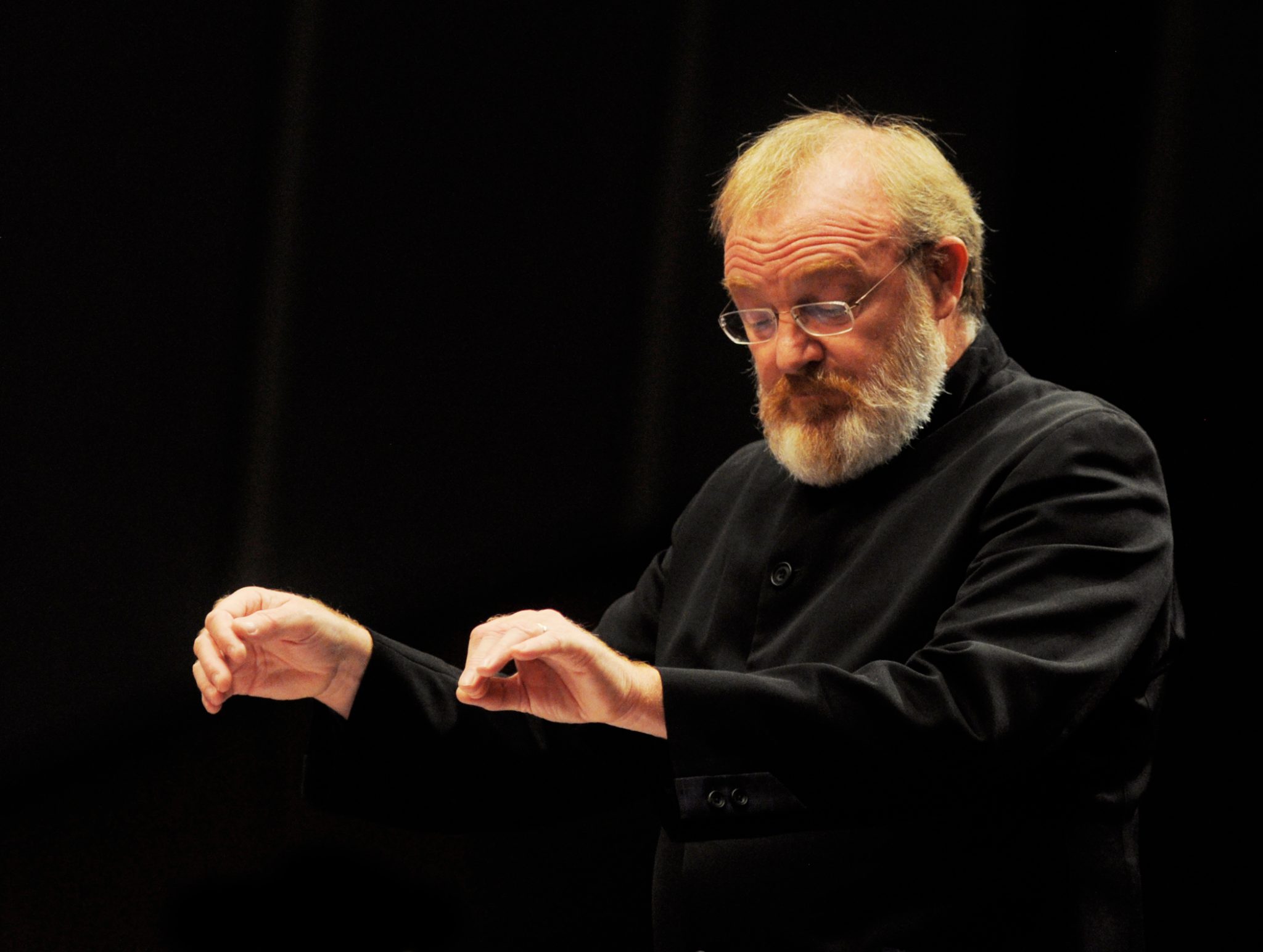
Since its foundation in 2006, the Symphony Orchestra of India has been resident at the NCPA. Highlights of its recent concerts there include Strauss’s An Alpine Symphony conducted by Jacek Kaspszyk, Mahler’s Lieder eines fahrenden Gesellen with the baritone Benjamin Appl, and Handel’s Messiah with Toby Spence and Neil Davies among the soloists. In addition to its work with Bisengaliev and Dalal, the SOI has performed with a long list of distinguished guest conductors and soloists, Yuri Simonov, Carlo Rizzi, Martyn Brabbins, Charles Dutoit, Rafael Payare, Maria João Pires, Augustin Dumay, Simon O’Neill, Cédric Tiberghien, Alina Ibragimova, Stephen Hough and Barry Douglas among them. The orchestra’s overseas credits include Beethoven’s Ninth Symphony in Moscow, performances in Muscat and Abu Dhabi, and a European debut tour in January 2016 including concerts at the Tonhalle Zurich and Geneva’s Victoria Hall. It is also a regular visitor to venues throughout India.
Zane Dalal, who joined the SOI as Resident Conductor in 2007, notes how the orchestra’s early years coincided with the global financial crisis. The decision to work for two seasons a year and attract a regular force of string players from Kazakhstan and other post-Soviet states, he recalls, set strong foundations that ensured the SOI’s initial survival and subsequent development. “In India we had to build those foundations from scratch,” says Dalal. “The challenge and rewards of that are among the most satisfying things to look back on now. We never compromised on the quality of our work. Having string players trained in the Russian conservatoire tradition and European woodwinds has allowed us to develop the orchestra’s core and cultivate its finesse of sound and ensemble. The reviews of our trip to Switzerland in 2016 showed the artistic level which the Symphony Orchestra of India has achieved and confirmed that we were ready to appear on the international stage. We’re proud of what we have achieved in just over a decade and want to share those achievements when we come to the UK next year.”
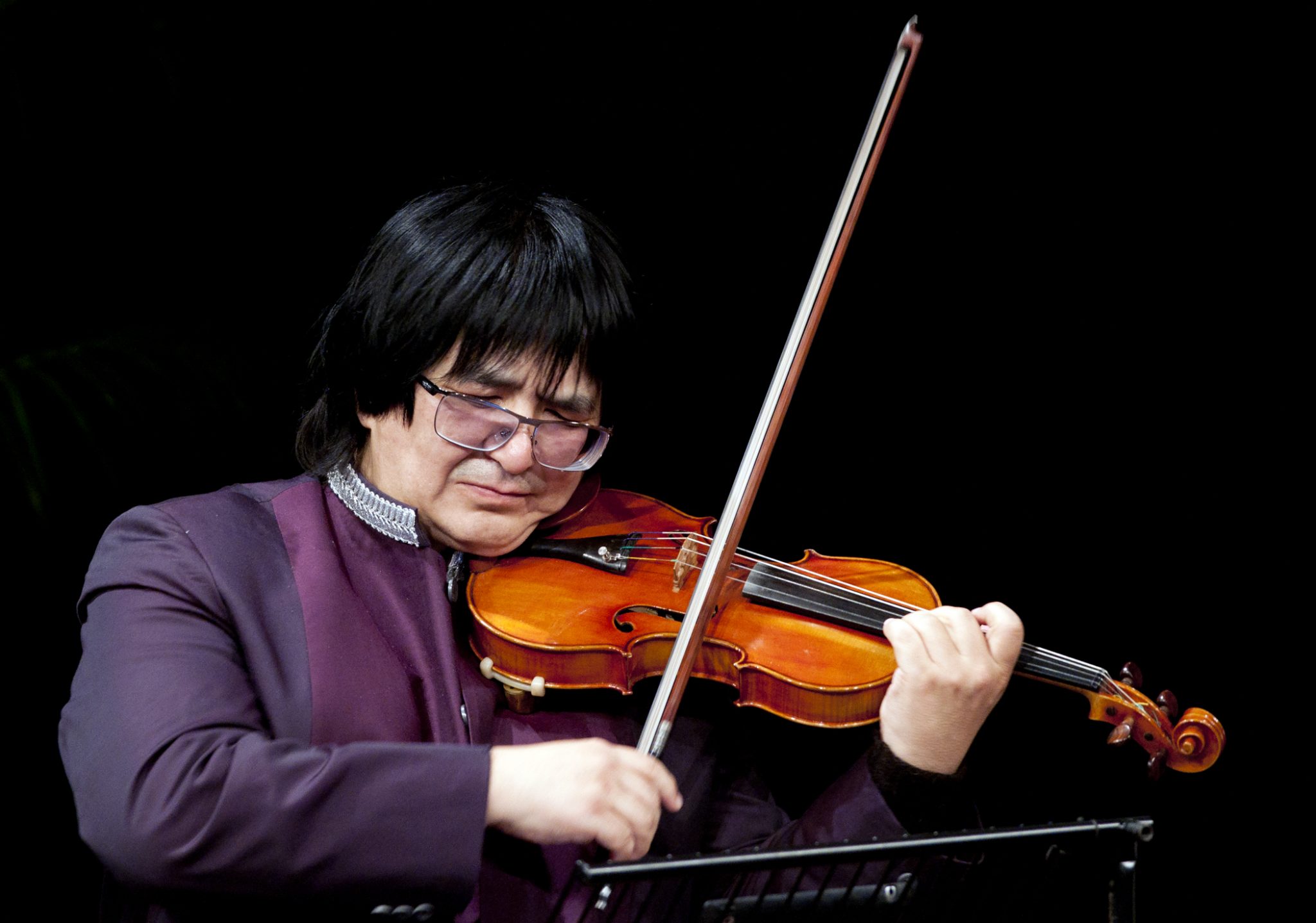
The idea for the Symphony Orchestra of India arose after Khushroo Suntook attended a concert given in London by the West Kazakhstan Philharmonic Orchestra in 2004. He invited the recently formed organisation and its conductor, Marat Bisengaliev, to perform at the NCPA. The success of their first and subsequent visits prompted Suntook to propose the formation of a new Mumbai-based orchestra comprising members of the Kazakh ensemble and Indian musicians. “Marat fell silent for a minute when I asked if he thought we could form an orchestra in India. He was persuaded after I explained that we already had a venue with five theatres and rehearsal spaces at India’s premiere performing arts centre.”
“When Khushroo brought up the idea of starting an orchestra in India, I was intrigued by the challenge,” says Marat Bisengaliev. “Over the past 11 years, the orchestra has come a long way, and working with some of the top conductors in the world today helps us grow even further. It is a young orchestra, with a mix of styles and nationalities, which gives it a special energy. I value the uncompromising approach towards the quality of music making for the Orchestra from our Chairman, as well as our long-term strategy to induct Indian musicians into the orchestra at a high standard, based solely on their professional merits. It is for this reason that we also started a music school, which is central to our mission and vital for the future of western classical music in India, at an international standard.”
Dr Jamshed Bhabha, the NCPA’s visionary founder, backed the project and encouraged Khushroo Suntook to bring his brainchild to life. “We decided to invite around fifteen foreign musicians to live at the NCPA and teach and perform there,” recalls Suntook. “They formed the nucleus of the full symphony orchestra and continue to work in Mumbai year-round as the SOI Chamber Orchestra.” The SOI launched its first full season in 2007 with a complete performance of Tchaikovsky’s The Nutcracker, presented in company with dancers from Russia and the United States. Although at first few local players met Marat Bisengaliev’s stringent audition standards, the Symphony Orchestra of India now employs ten full-time Indian musicians and recruits others as required from a growing pool of native talent. The NCPA’s Special Music Training Programme, established in 2012 to nurture future generations of instrumentalists, has made impressive progress since its launch to support Suntook’s aim that the majority of SOI players will one day come from India.
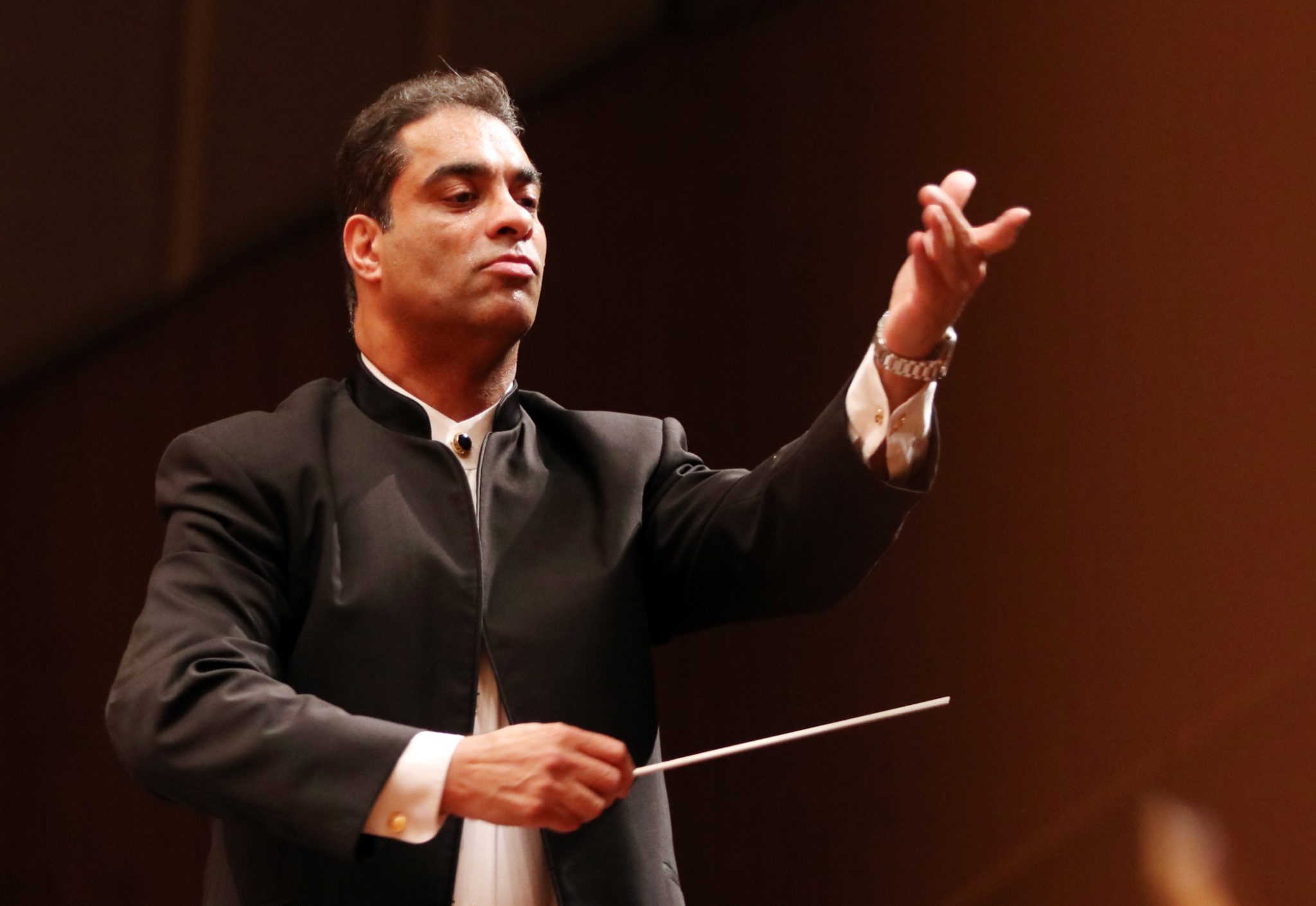
Zakir Hussain’s Peshkar stands as tribute to the SOI’s commitment to cross-cultural exchange. The piece, commissioned by the orchestra for its 2016 Swiss tour, offers a powerful fusion of North Indian classical music with elements of the western solo concerto. “Pairing Peshkar with Scheherazade works well for many reasons,” observes Zane Dalal. “Rimsky’s score offers a westernised interpretation of the sights and sounds of Persia and the Arab world. It’s a great showpiece and I’m delighted that we will be performing it on tour. There are points of comparison between it and Peshkar, which blends the rhythmic elements of Indian music with expressive melodies for symphonic instruments. It’s more symphony than concerto, with a fascinating dialogue between the soloist and orchestra based on the five-part structure of the peshkar or ‘presentation’ form of tabla composition. I believe that combination works well for connoisseurs of Indian classical music and of western orchestral music. It is a great honour to introduce this marvellous piece to British audiences with Zakirbhai and the Symphony Orchestra of India.”
Tuesday 19 February 2019
Symphony Hall, Birmingham, 7.30pm
Zane Dalal conductor | Zakir Hussain tabla | Symphony Orchestra of India
Weber Overture to Oberon
Hussain Peshkar, concerto for tabla and orchestra (SOI Commission)
Rimsky-Korsakov Scheherazade, Op.35
Wednesday 20 February 2019
Cadogan Hall, London, 7.30pm
Zane Dalal conductor | Zakir Hussain tabla | Symphony Orchestra of India
Beethoven Overture to Fidelio
Hussain Peshkar, concerto for tabla and orchestra (SOI Commission)
Rimsky-Korsakov Scheherazade, Op.35
Thursday 21 February 2019
St David’s Hall, Cardiff, 7.30pm
Martyn Brabbins conductor | Marat Bisengaliev violin | Symphony Orchestra of India
Weber Overture to Oberon
Saint-Saëns Violin Concerto No.3 in B minor, Op.61
Rimsky-Korsakov Scheherazade, Op.35
Friday 22 February 2019
G Live, Guildford, 7.30pm
Zane Dalal conductor | Marat Bisengaliev violin | Symphony Orchestra of India
Beethoven Overture to Fidelio
Bruch Violin Concerto No.1 in G minor, Op.26
Rimsky-Korsakov Scheherazade, Op.35
Sunday 24 February 2019
Usher Hall, Edinburgh, 3pm
Martyn Brabbins conductor | Marat Bisengaliev violin | Symphony Orchestra of India
Weber Overture to Oberon
Bruch Violin Concerto No.1 in G minor, Op.26
Rimsky-Korsakov Scheherazade, Op.35
Monday 25 February 2019
Cadogan Hall, London, 7.30pm
Martyn Brabbins conductor | Marat Bisengaliev violin | Symphony Orchestra of India
Weber Overture to Oberon
Bruch Violin Concerto No.1 in G minor, Op.26
Rachmaninov Symphony No.2 in E minor, Op.27





